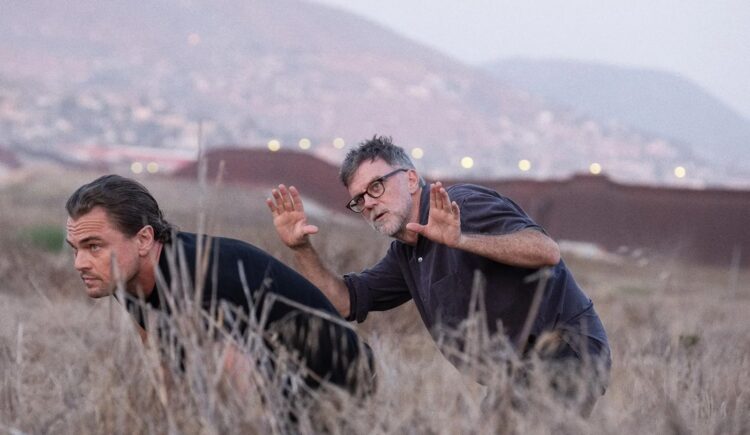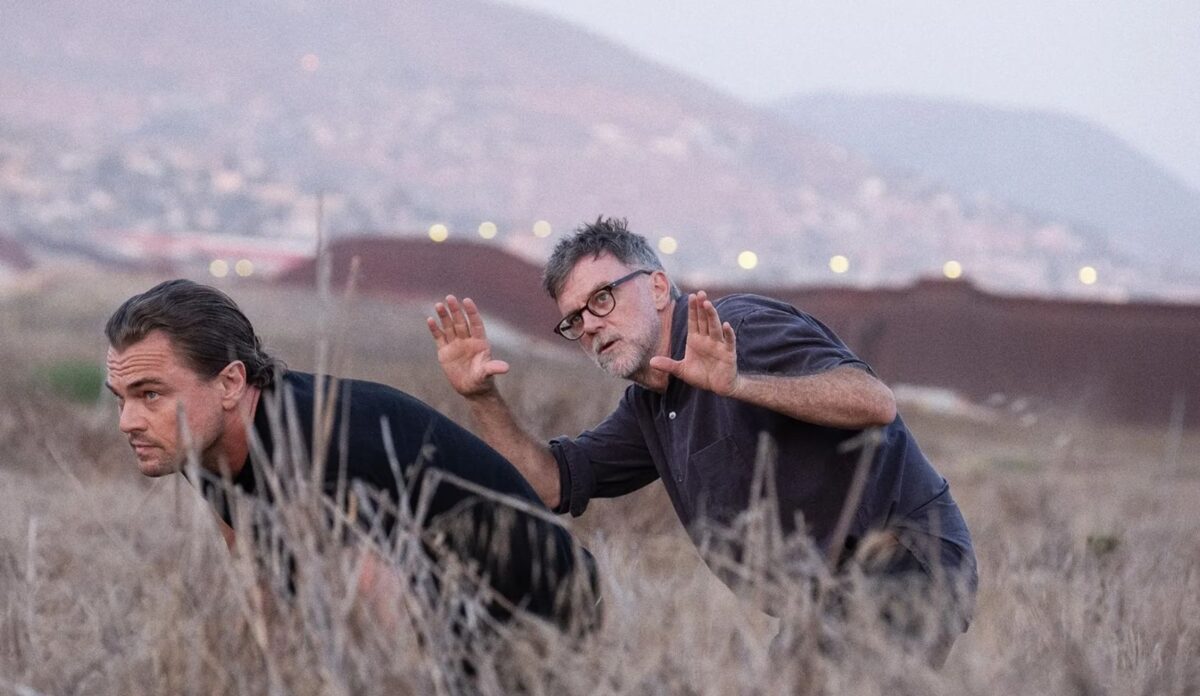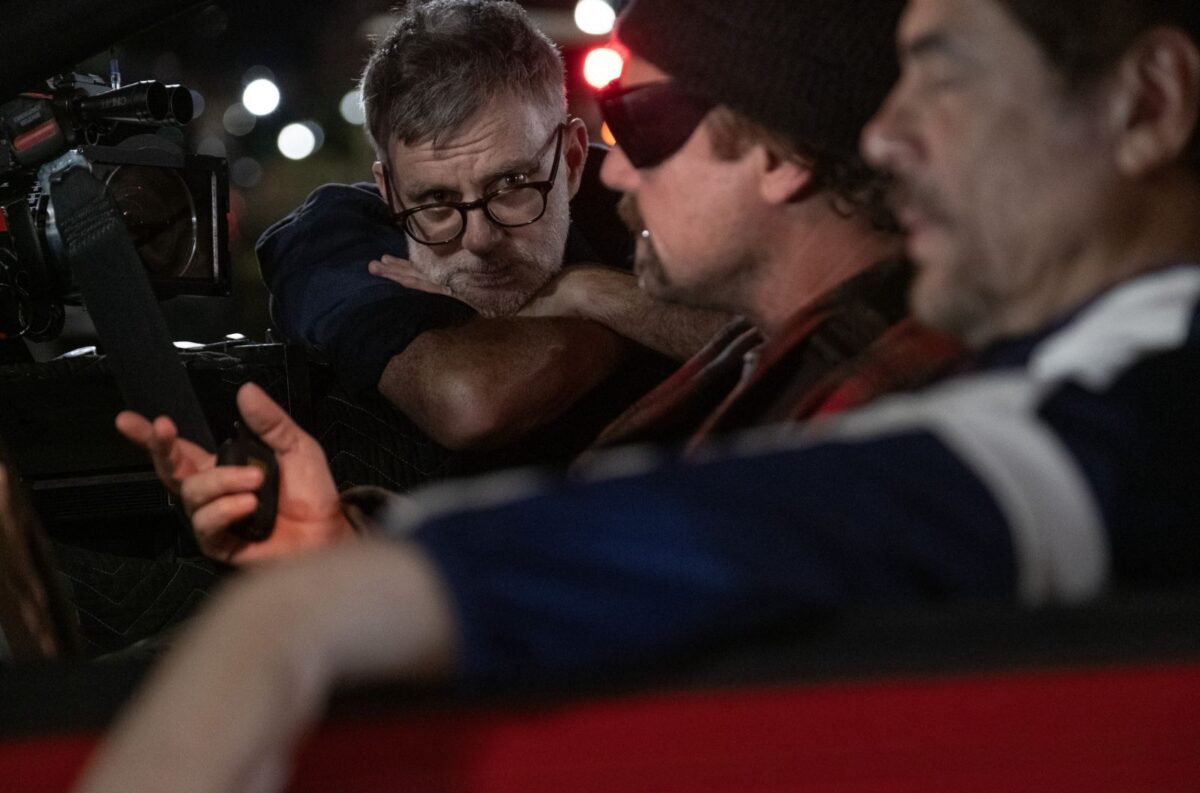
After finally unveiling One Battle After Another last week with a Steven Spielberg-anointed screening and conversation, the early praise for Paul Thomas Anderson’s masterpiece of a comedy-action epic has been rightfully rapturous. While the story of revolutionaries is inspired by Thomas Pynchon’s 1990 novel Vineland (moving up the events a few decades), Anderson’s film barely lifts a sentence from its source material, instead using just the basic structure to tell a story all his own. In fact, it’s such an opposite approach to his first Pynchon adaptation, Inherent Vice, that we’ve been curious about his path of adaptation. Now, we finally have a few details.
“I started working on this story 20 years ago with the goal of writing an action car-chase movie, and I returned to it every two or three years,” Anderson said in WB’s official production notes. “At the same time, this was in the early 2000s, I had the notion to adapt Thomas Pynchon’s Vineland, a book about the 1960s, which he wrote in the ’80s. So, I was trying to decide what the story meant another 20 years later. The third idea floating around in my mind at the time was a character, a female revolutionary. So really for 20 years I had been pulling on all these different threads, and in a way, none of them ever left me.”
“Realistically, for me, Vineland was going to be hard to adapt. Instead, I stole the parts that really resonated with me and started putting all these ideas together. With [Pynchon’s] blessing,” Anderson notes, confirming he’s one of the rare individuals on the planet who has crossed paths with Pynchon, the reclusive postmodernist author whose new book Shadow Ticket arrives just after One Battle hits theaters.
The director also revealed a bit more about the adaptation process during a recent SAG Q&A, noting the film was borne out of “a bunch of different sparks spread about over a lot of many different years.” He added, “The very, very first spark was to really, simply want to make a kind of action-adventure film in the desert with a car chase. That’s just the sort of broad strokes, like, ‘Oh, that wouldn’t that be fun to do one day?’ And then that idea is in search of a stronger premise than that. I had a story about a bounty hunter who went around and did bad things for bad folks and then felt like he needed to change his direction. And that kind of stuck around for a while.”
“And then really, this book, Vineland by Thomas Pynchon, whom I adapted his book Inherent Vice a few years back, was a story that I loved very much. And the central premise there is a central premise that we’ve stolen of what happens when revolutionaries scatter, and what happens when one of them––in the book, his name is Zoyd––ends up in the Northern California woods with a daughter to raise and the past comes back to haunt them,” he adds.
While his brilliant, overlooked Inherent Vice more or less lifted from Pynchon’s book word for word, Anderson went a different route. “But rather than be respectful of the book, like I did with Inherent Vice, I just kind of took what I needed and combined some of these other stories and just started running with it over the years and accumulating material and thinking about [this cast] to put in the story, and it all just sort of started to come together quite strongly about seven or eight years ago.”
However, it still wasn’t the right time due to a crucial bit of casting. “And then, if I’m honest, [casting director] Cassandra [Kulukundis] and I thought the most important part was finding somebody to play Willa,” he notes. “And absent of finding somebody to play Willa at that time, we just kind of waited, made Licorice Pizza, and then getting back up again, finding the right Willa made it feel like it was really time to make a movie… this movie was waiting for Chase [Infiniti], honestly. Just like it took Leo and I 25 years to work together, I feel like that was supposed to happen the way it was supposed to happen.”
With less than two weeks to go until One Battle hits theaters, for more, watch a recent SAG Q&A and the first clip from the film below.


Lastly, here are my brief thoughts before the full embargo drops.
The post Paul Thomas Anderson on Getting Thomas Pynchon’s Blessing to Radically Adapt Vineland: “I Stole the Parts That Really Resonated with Me” first appeared on The Film Stage.
from The Film Stage https://ift.tt/2nFvcdj

0 Comments